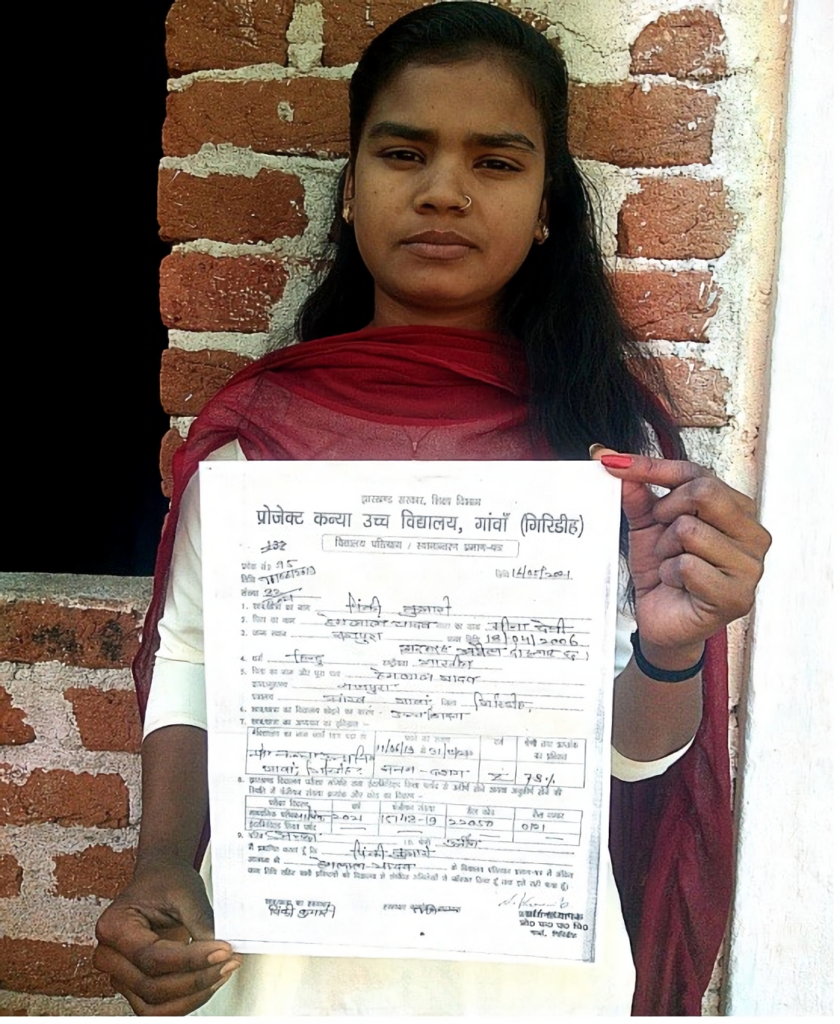
A vision to “Eliminate child labor from mica supply chains” is the genesis of Responsible Mica Initiative (RMI). On this remarkable World Day Against Child Labor, we take this opportunity to revisit the concern of vulnerable children engaged as child workers worldwide, and to reflect on what is done constructively through RMI’s collaborative efforts to assist them with their life.
“Four years back in 2018, when RMI started, we never could have imagined that this unique journey of transforming the complex landscape from “Child Labour to Child Leaders” was going to be such emotional, heart-touching, powerful, motivational, and inspiring series of events,” says Vijay Jain, RMI India Program Manager.
The COVID-19 pandemic has led to devastating effects on children globally, which also made RMI’s task more complex and massive. Economic disruption put vulnerable children from the mica community in distress, and school closures have potentially jeopardized their education indefinitely. Even before the pandemic thousands of children in the rural areas of Jharkhand and Bihar were at verge of dropping out from education opportunities due to the widening digital divide between children who had access to online education and those who did not.
On this special day, we would like to congratulate all the amazing children in the mica communities who, through their remarkable devotion, willingness, and inventiveness, have turned such challenges into opportunities. RMI’s program in India is embellished with many such inspiring stories from our communities that truly demonstrate the power of collaboration, partnership, and multi-stakeholder approach in transforming the lives of many children. From struggle to success, from powerlessness to strength, from child laborers to child leaders.
Pinki Kumari is one example of these exceptional children. She is 17 years old from village Rajpura, Giridih district, Jharkhand.
Pinki, the first generation in her family lineage to get a formal education, belongs to a socially marginalized demographic in India. Both her parents earn the major portion of their livelihood by picking mica. Amid COVID-19, due to the nationwide lockdown in India, Pinki’s parents found it difficult to sustain the family due to restricted movement and limited access to economic activities such as mica picking and other jobs. At the same time, schools were closed to mitigate the COVID spread, and millions of children were asked to join online education platform to continue their education. This unforeseen episode led Pinki and her family into a difficult set of circumstances as they could not offer their daughter access to online education system. Pinki noticed that other children in her vicinity were facing the same challenge due to lack of the required electronic devices such as smart phones, internet access, and just as importantly the skills to operate them.
This challenge and her frustration but also her curiosity compelled her to organize a meeting with other children in the village to discover answers to the widening digital and social divide between children who had easy access to online schooling and those who did not. She later raised this concern formally with the Bal-Manch (a children’s forum established by RMI in collaboration with local NGOs for echoing the voices of children in the communities) and then with RMI’s NGO partners. It was difficult for NGO partners to address the problem since providing access to smart phones and operating them in places without internet connectivity was nearly impossible.
Following several discussions with children, Pinki Kumari and NGO partners devised an innovative plan to turn online digital chapters from grades three to five into manually printed worksheets. These worksheets were then delivered bi-weekly to each child at home. Along with the worksheets, each student was given one-on-one lessons on how to utilize the worksheets by specially trained field volunteers. Children receive the results of their worksheets bi-weekly, along with detailed suggestions on areas for improvement. This process not only bridged the educational gap and alleviated psychological distress caused by the transition from a manual to a digitized education system, but children also found it useful because the process was more engaging than online classes. It also strengthened the emotional bond between children and their parents while sitting and sharing what they do at school.
In 2021, Pinki Kumari became the first girl from her village who has passed the 10th standard with matriculated pass for her grade. Not only that, she also motivated two other girls from her village to pursue matriculation. Today, she is a model for thousands of such marginalized children, inspiring them to persevere against all odds. She aspires to be a teacher and wants to use the power of education to assist marginalized youngsters fulfil their dreams.
“A problem is a problem until you turn it into a challenge. Once it becomes a challenge, I truly enjoy it and I become innovative and energized to overcome it. I must be thankful to my Bal Manch members and RMI for inculcating such attitude through a process of learning and engagement”
Pinki Kumari
On this unique day, RMI congratulates all the children such as Pinki for building their own paths to realize their dreams despite all the odds and struggles. We are hopeful that through the distinctive power of partnership and collaboration, we will be able to nurture thousands of children in distress from child laborers to child leaders.
Vijay Jain, RMI India Program Manager